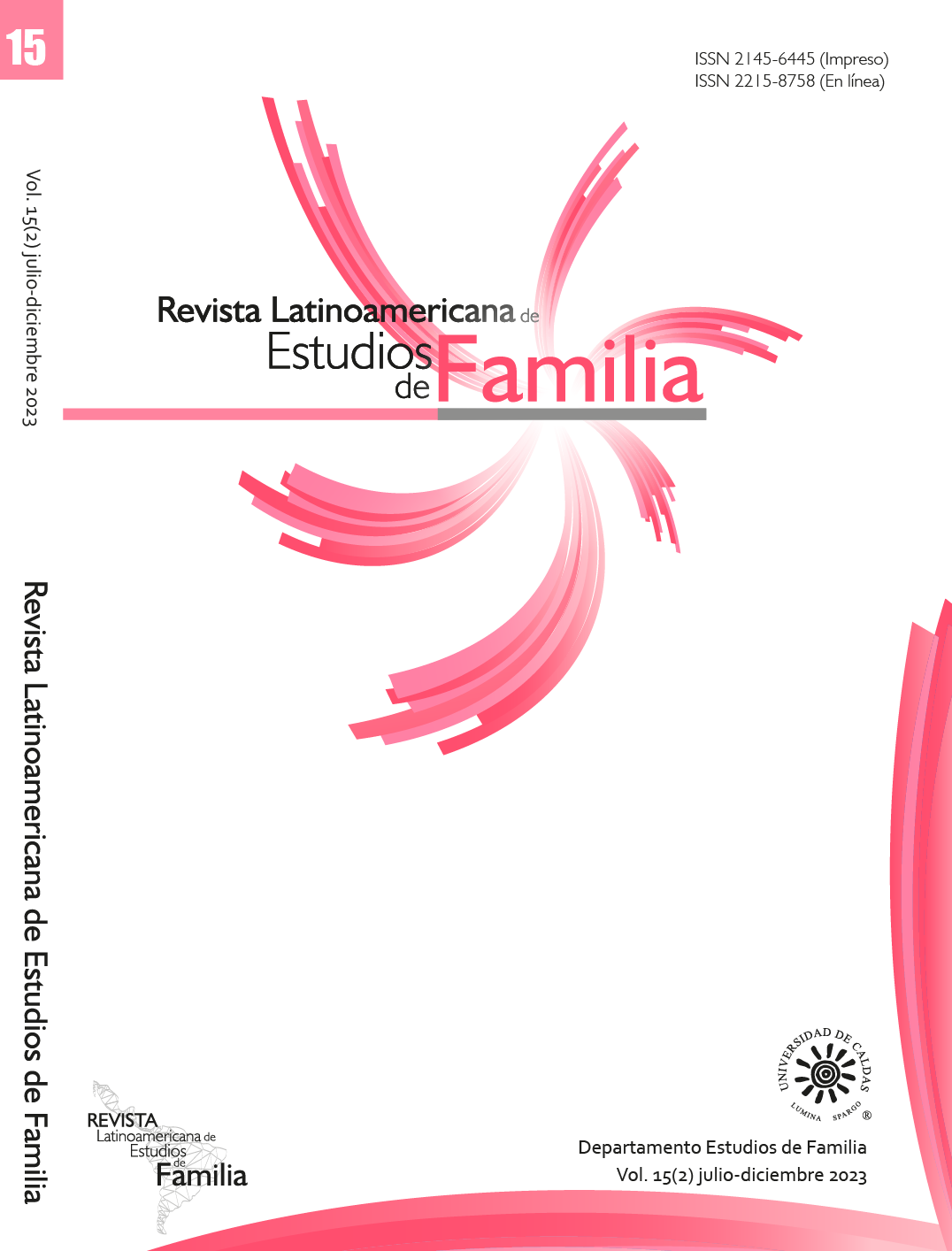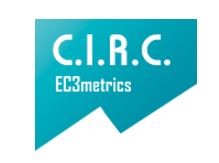Authors
Abstract
Objective: This review aims to identify the risk and protection factors that influence parenthood in Latin American families after migration to the two main countries that receive the Latino population, the United States and Spain. Methodology: A systematic review of scientific articles was carried out through the PRISMA protocol. A total of 17 studies published between 2006-2019 on the exercise of parenting by migrant Latin American families in both countries were included. Results: Multiple risk and protective factors were identified from different systems related to parenting. Sociodemographic factors, such as lower incomes and job insecurity, were the most documented risk factors and were related to parental stress and inadequate educational styles. Microsystems factors, such as authoritarian styles and beliefs of parents or lack of affection were related to a greater likelihood of disruptive behavioral problems in children. Factors from the exosystem, such as the absence of support, were related to greater social isolation and less community integration. Macrosystem factors, such as acculturation, were related to higher parental stress and lower perception of parenting competence. The protective factors were found mainly in the microsystem (such as, attachment) and in the exosystem (such as, social support). Conclusions: Migration is not in itself negative or positive for the exercise of the parental task but rather it is the risk and protection factors in the new ecosystem that hinder or favor the exercise of parenting. Social policies and interventions aimed at Latin American migrant families should be designed considering the impact of different risk and protection factors on family dynamics.
Keywords:
References
Achotegui, J. (2009). Estrés límite y salud mental: el síndrome del inmigrante con estrés crónico y múltiple (Síndrome de Ulises). Gaceta Médica de Bilbao, 106(4), 122-133. https://doi.org/10.1016/S0304-4858(09)74665-7
Aguilar-Gaxiola, S., Loera, G., Méndez, L., Sala, M., Latino Mental Health Concilio, y Nakamoto, J.(2012). Community-defined solutions for Latino Mental health disparities: California Reducing Disparities Project, Latino Strategic Planning Workgroup population report. University of California Davis.
Aguilera-Guzmán, R., Salgado, N., Romero, M. y Medina-Mora, E. (2004). Paternal absence and international migration: stressors and compensators associated with the mental health of mexican teenegers of rural origin. Adolescence, 39(1), 711-723.
Alcalde-Campos, R. y Pávez, I. (2013). Infancia, familias monoparentales e inmigración latinoamericana en Barcelona, España. Revista Latinoamericana de Ciencias Sociales, Niñez y Juventud, 11(1), 229-243. https://doi.org/:10.11600/1692715x.11115040712
Ayón, C. (2011). Latino families and the public child welfare system; examining the role of social support networks. Children and youth services review, 33(10), 2061-2066. https://doi.org/10.1016/j.childyouth.2011.05.035
Ayón, C. (2014). Services Needs among Latino Immigrant Families: Implications for Social Work Practice. Social Work, 59(1), 1-23. https://doi.org/10.1093/sw/swt031
Ayón, C. y Ghosn, M. (2013). Latino immigrants families social support networks: strenghts and limitations during a time of stringent inmigration legisiation and economic insecurity. Journal of Community Psychology, 41(1), 359-377. https://doi.org/10.1002/jcop.21542
Ayón, C., Valencia-García, D. y Kim, S. (2017). Latino immigrant families and restrictive immigration climate: Perceived experiences with discrimination, threat to family, social exclusion, children´s vulnerability, and related factors. Race and Social Problems, 9(4), 300-312. https://doi.org/10.1007/s12552-017-9215-z
Badi, S. y Murtagh, N. (2019). Green supply chain management in construction: A systematic literature review and future research agenda. Journal of cleaner production, 223(1), 312-322. https://doi.org/10.1016/j.jclepro.2019.03.132
Barrionuevo, L., Infesta, G. y Rodríguez, M. (2011). Procesos migratorios y reconfiguraciones familiares en argentinas residentes en España. Aportes para una perspectiva transnacional. Revista Latinoamericana de Estudios de Familia, 3(1), 25-49.
Basabe, N. y Bobowik, M. (2012). Estatus grupal, discriminación y adaptación en inmigrantes latinoamericanos y africanos en España. Psicoperspectivas, 5(1), 5-29. http://dx.doi.org/10.5027/psicoperspectivas-Vol12-Issue1-fulltext-237
Beiruti, N. (2008). La inmigración en la encrucijada de la inmigración. Revista norte de salud mental, 7(32), 61-70.
Belsky, J. (1993). Etiology of child maltreatment: A developmental ecological analysis. Psychological bulletin, 114(3), 413-434. https://psycnet.apa.org/doi/10.1037/0033-2909.114.3.413
Brabeck, K., Sibley, E. y Lykes, B. (2015). Authorized and Unauthorized Immigrant Parents: The impact of Legal Vulnerability on Family Contexts. Hispanic Journal of Behavioral, 38(1), 1-28. https://doi.org/10.1177%2F0739986315621741
Bronfenbrenner, U. (1986). Ecology of the family as a context for human development: Research perspectives. Developmental Psychology, 22(6), 723-742. https://doi.org/10.1037/0012-1649.22.6.723
Castellanos, R. (2014). La educación y la influencia de los factores culturales en menores latinoamericanos. Educación y Diversidad, 8(1), 47-58.
Cicchetti, D. y Lynch, M. (1993). Toward an ecological/transactional model of community violence and child maltreatment: Consequences for children´s development. Pshychiatry, 56(1), 96-118. 10.1521/00332747.1993.11024624
Consejo de Europa. (2006). Recomendación Rec (2006) del Comité de Ministros a los Estados Miembros sobre políticas de apoyo al ejercicio positivo de la parentalidad. https://www.mscbs.gob.es/ssi/familiasInfancia/parentalidadPos2012/docs/recomendacionConsejoEurop2006df.pdf
Cook, G., Roggman, L. y D´Zatko, K. (2012). A person-oriented approach to understanding dimensions of parenting in low-income mothers. Early Childhood Research Quearterly, 4(4), 582-595. https://doi.org/10.1016/j.ecresq.2012.06.001
De Sousa, M. y Ribeiro, A. (2009). Revisión sistemática y metaanálisis de estudios de diagnóstico y pronóstico: una guía. Arq. Bras. Cardiol., 92(3), 241-251. https://doi.org/10.1590/S0066-782X2009000300013 Díez, A. (2014). El estudio de la migración internacional de retorno en Colombia: Una revisión bibliográfica sobre el estado actual. Amauta, 12(24), 23-39.
Dominguez, S. y Lubitow, A. (2008). Transnational Ties, Poverty, and Identity: Latina American Immigrant Women in Public Housing. Family Relations, 57(4) 419-430. https://doi.org/10.1111/j.1741-3729.2008.00511.x
Duque-Páramo, M. (2012). Parental Migration in Colombia: Children´s voices in National an International Perspectives. The journal of Latin American and Caribbean Anthopology, 472-492. https://doi.org/10.1111/j.1935-4940.2012.01251.x
Gallardo, A. (2019). Parental acculturation: A review of the challenges and adjustments that the process of acculturation implies in parental cognitions. Summa Psicológica, 16(2), 121-129. https//doi.org/10.18774/0719-448.x2019.16.412
García, A. y Lessin, E. (2013). Características y utilidad de las Revisiones Sistemáticas o Meta-análisis. Revista Científica Ciencia Médica, 16(2), 4-5.
Gil-Alonso, F., Bayona-i-Carrasco, J. y Vono De Vilhena, D. (2012). Las migraciones internas de los latinoamericanos en España: del boom a la crisis económica. Papeles de población, 18(71), 1-42.
Gough, D., Thomas, J. y Oliver, S. (2012). Clarifying differences between review designs and methods. Systematic reviews, 28(1), 1-19. https://doi.org/10.1186/2046-4053-1-28
Henao, C., Lalueza, J. y Tenorio, M. (2016). Valores y prácticas educativas de familias latinoamericanas inmigradas en Barcelona: ¿qué cambia y qué permanece? Revista Latinoamericana de Ciencias Sociales, Niñez y Juventud, 14(1), 65-76. http://dx.doi.org/10.11600/1692715x.14141090315
Herrera, F. (2012). La migración a Estados Unidos: una visión del primer decenio del siglo XXI. Norteamérica, 7(2), 171-197.
Hershberg, R. (2017). Consejos as a Family Process in Transnational and Mixed-Status Mayan Families. Journal of Marriage and Family, 80(2), 334-348. https://doi.org/10.1111/jomf.12452
Holtrop, K., McNeil, S. y Scott, J. (2015). Associations between Positive Parenting Practices and Child Externalizing Behavior in Underserved Latino Immigrant Families. Family Process, 54(2), 359-375. https://doi.org/10.1111/famp.12105
Hurwich-Reiss, E. y Gudiño, O. (2016). Acculturation Stress and Coduct Problems Among Latino Adolescents: The Impact of Family Factors. Journal of Latina/o Psychology, 4(4), 218-231. https://psycnet.apa.org/doi/10.1037/lat0000052
Iglesias, J., Rua, A. y Areas, A. (2020). Un arraigo sobre el alambre. La integración social de la población de origen inmigrante en España. Fundación FOESSA y Cáritas Española.
Ijzendoorn, M. (2005). El apego durante los Primeros Años (0-5) y su Impacto en el Desarrollo Infantil. Leiden University.
INE. (2019). Población (españoles/extranjeros) por País de Nacimiento, sexo y año.
https://www.ine.es/jaxi/Datos.htm?path=/t20/e245/p08/l0/&file=01006.px#!tabs-tabla
Kiang, L., Glatz, T. y Buchanan, C. (2017). Acculturation Conflict, Cultural Parenting, Self-Efficacy, and Perceived Parenting Competence in Asian American and Latino/a Families. Family Process, 56(4), 943-961. https://doi.org/10.1111/famp.12266
Lansford, J., Bornstein, M., Dodge, K., Skinner, A., Putnick, D. y Deater-Deckard, K. (2011). Attributions and Attitudes of Mothers and Fathers in the United States. Parent Sci Pract, 11(2), 199-213. https://doi.org/10.1111/famp.12105
Leidy, M., Guerra, N. y Toro, R. (2010). Postiive Parenting, Family Cohesion, and child Social Competence Among Immigrant Latino Families. Journal of Family Psychology, 24(3), 252-260. https://psycnet.apa.org/doi/10.1037/a0019407
Letelier, M., Manríquez, M. y Rada, G. (2005). Revisiones sistemáticas y metaanálisis: ¿son la mejor evidencia? Revista médica de Chile, 133(2), 246-249. http://dx.doi.org/10.4067/S0034-98872005000200015
Llano, J. (2018). El estado de la pobreza seguimiento del indicador de pobreza y exclusión social en España 2008-2017. Gestión y Servicios SL.
López-Montaño, L. (2011). Proyecto Familiar y familia en situación de transnacionalidad en Colombia. Revista Latinoamericana de Estudios de Familia, 3(1), 127-145.
Maiquez, M., Rodrigo, M., Capote, C. y Vermaes, I. (2000). Aprender en la vida cotidiana. Un programa experiencial para padres. Aprendizaje Viso.
Manyena, S. (2006). The concept of resilience revisited. Disasters, 30(4), 434-450. https://doi.org/10.1111/j.0361-3666.2006.00331.x
Martinez, C., McClure, H., Eddy, M. y Wilson, M. (2011). Time in U.S. Residency and the Social, Behavioral, and Emotional Adjustment of Latino Immigrant Families. Hispanic Journal of Behavioral Sciences, 33(3), 323-349. https://doi.org/10.1177%2F0739986311411281
Menéndez, S., Jiménez, L. e Hidalgo, V. (2011). Estructura factorial de la escala PSOC (Parental Sense of Competence) en una muestra de madres usuarias de servicios de preservación. Revista Iberoamericana de Diagnóstico y Evaluación Psicológica, 32(2), 187-204.
Micolta, A. y García, G. (2011). Parentalidad y autoridad: un reto en el contexto de la migración internacional. Prospectiva: Revista de Trabajo Social e Intervención Social, 16(1), 257-287.
Moher, D., Liberati, A., Altman, D., Tetzlaff, J., Mulrow, C., Gotzsche, P. y Loannidis, C. (2009). The PRISMA statement for reporting systematic review and meta-analysis of studies that evaluate health care interventions: explanation and elaboration. Journal of clinical, 6(7), 1-34.
https://doi.org/10.1371/journal.pmed.1000100
Morad, P., Bonilla, G. y Rodríguez, M. (2011). Vida familiar, vínculos parentales y migración transnacional colombiana: cambios y permanencias. Confluenze, 3(1), 62-82. https://doi.org/10.6092/issn.2036-0967/2196
Moreno-Fernández, F., Hernández-Nieto, R. y Gutiérrez, M. (2017). Mapa hispano de los Estados Unidos. Instituto Cervantes.
Noah, A. y Landale, N. (2018). Parenting Strain Among Mexican-Origin Mothers; Differences by Parental Legal Status and Neighborhood. Journal of Marriage and Family, 80(2), 317-333. https://dx.doi.org/10.1111%2Fjomf.12438
Nunes, C. y Ayala-Nunes, L. (2016). Parenting sense of competence in at psychological risk families and child well-being. Bordón. Revista de Pedagogía, 69(1), 1-15. doi: 10.13042/Bordon.2016.48589
OEA. (2017). Migración Internacional en las Américas: Cuarto informe del Sistema Continuo de Reportes sobre Migración Internacional en las Américas. OEA.
ONU. (2020). Investigación de la Migración Internacional en Latinoamérica (IMILA). https://celade.cepal.org/bdcelade/imila/
Orozco, A. (2013). Migración y estrés aculturativo: una perspectiva teórica sobre aspectos psicológicos y sociales presentes en los migrantes latinos en Estados Unidos. Norteamérica, 8(1), 7-44. https://doi.org/10.1016/S1870-3550(13)71765-8
Orozco, A. (2018). Acculturation, parental involvement, and maternal self-efficacy: A qualitative study among Latin American women in the United States. Interdisciplinaria, 35(1), 87-104. https://doi.org/10.1111/famp.12266
Page, M., McKenzie, J., Bossuyt, P., Boutron, I., Hoffman, T., Mulrow, C., . . . Moher, D. (2021). The PRISMA 2020 statement: An updated guideline for reporting systematics reviews. International Journal of Surgery, 88(1), 1-9. https://doi.org/10.1016/j.ijsu.2021.105906
Panic, N., Leoncini, E., de Belvis, G., Ricciardi, W. y Boccia, S. (2013). Evaluation of the Endorsement of the Preferred Reporting Items for Systematic Reviews and Meta-Analysis (PRISMA) Statement on the Quality of Published Systematic Review and Meta-Analyses. Plos One, 8(12), 1-7.
https://doi.org/10.1371/journal.pone.0083138
Pérez-López, J., Pérez-Lag, M., Montealegre, M. del P. y Perea, L. P. (2012). Estrés parental, desarrollo infantil y atención temprana. International Journal of Developmental and Educational Psychology, 1(1), 123-132.
Perreira, K., Chapman, M. y Stein, G. (2006). Becoming an American Parent: Overcoming Challenges and Findin Strenght in a New Immigrant Latino Community. Journal of Family Issues, 27(10), 1383-1414. https://doi.org/10.1177%2F0192513X06290041
Requena-Méndez, A., Aldasoro, E., Lazzari, E., Sicuri, E., Brown, M., Moore, J. y Muñoz, J. (2015). Prevalence of Chagas disease in Latin-American migrants living in Europe: a systematic review and meta-analysis. PLOS: Neglect Tropical Diseases, 9(2), 1-15. https://doi.org/10.1371/journal.
pntd.0003540
Rethlefsen, M., Kirtley, S., Waffenschmidt, S., Ayala, A., Moher, D., Page, M. y Koffel, J. (2021). PRISMA-S: an extension to the PRISMAStatement for Reporting Literature Searchesin Systematic Reviews. Systematic reviews, 10(1), 1-19.
Revilla, L. y Bailon, E. (2005). El cuestionario Medical Outcomes Study (MOS), un instrumento para evaluar el apoyo social. Revista Comunidad, 16(1), 1-4.
Rodrigo, M., Máiquez, M., Martin, J., Byrne, S. y Rodríguez, B. (2015). Manual práctico de parentalidad positiva. Síntesis.
Rutter, M. (2007). Implications of Resilience Concepts for Scientific Understanding. Annals, 1094(1), 1-12. https://doi.org/10.1196/annals.1376.002
Santos, M. y Lorenzo, M. (2008). La participación de las familias migrantes en la escuela. Un estudio centrado en la procedencia. Revista de Educación, 4(1), 277-300.
Sherbourne, C. y Stewart, A. (1991). The MOS social support survey. Social Science Medicine, 32(6), 705- 714.
https://doi.org/10.1016/0277-9536(91)90150-b
Silberman, S., Grau, J., Castellanos, P., Duran, P. y Smith, E. (2019). Friend Support and the Parenting of Latina Adolescent Mothers: The Moderating role of Maternal Age. Journal of Child and Family Studies, 1(4), 1444-1457. https://doi.org/10.1007/s10826-019-01647-7
Snowden, L. y Yamada, A. (2005). Cultural differences in access to care. Annual Review of Clinical Psychology, 1(1), 143-166. https://doi.org/ 10.1146/annurev.clinpsy.1.102803.143846
Urrútia, G. y Bonfill, X. (2010). Declaración PRISMA: una propuesta para mejorar la publicación de revisiones sistemáticas y metanálisis. Medicina Clínica, 135(11), 207-511.
Villalba, C. (2003). El concepto de resiliencia individual y familiar. Aplicaciones en la intervención social. Psychosocial intervention, 12(3), 283-299.
Yomtov, D., Plunkett, S., Sands, T. y Reid, A. (2015). Parenting and Ninth Graders´Self-Efficacy and Relational Self-Esteem in Latino Immigrants Families. Family and Consume Sciences Research Journal, 43(3), 269-283. https://doi.org/10.1111/fcsr.12102
Zarza, M. y Sobrino, M. (2017). Estrés de adaptación sociocultural en inmigrantes latinoamericanos residentes en Estados Unidos vs. España: Una revisión bibliográfica. Anales de Psicología, 23(1), 72-84. http://dx.doi.org/10.6018/analesps

 PDF (Español)
PDF (Español)
 FLIP
FLIP
 Perfil Google Scholar
Perfil Google Scholar
























